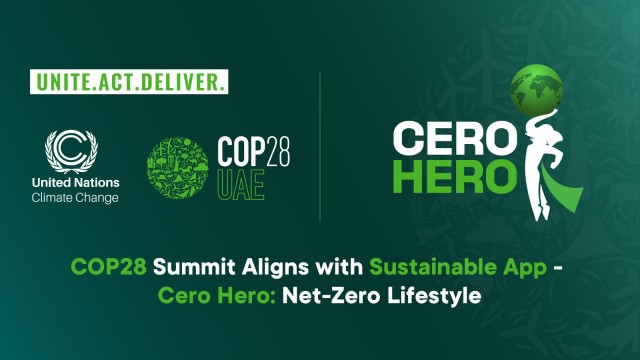(Isstories Editorial):- Hyderabad, Telangana Dec 18, 2023 (Issuewire.com) – In a landmark decision, government ministers from nearly 200 countries concluded the COP28 climate summit with an agreement that sets a global course for transitioning away from fossil fuels. This pivotal move, coming after intense negotiations and widespread demand for decisive action, marks a significant shift in the global climate agenda.
A Paradigm Shift in Climate Policy
The UAE, hosting the summit, announced this unprecedented agreement on social media, describing it as a “paradigm shift” with the potential to redefine global economies. The agreement, known as “The UAE Consensus,” calls for a transition away from fossil fuels in energy systems in a just, orderly, and equitable manner, aiming to achieve net zero emissions by 2050.
More on Isstories:
- LoneStar Handy Pros: Home Repairs and Maintenance in Pearland, Friendswood, Manvel, League City, and Houston
- Rao Kothapalli, MD, Brings Expertise in Cardiology to The Medical Center of Southeast Texas
- Accomplished Radiologist Kelly Harkins-Squitieri, MD, Elevates Breast Health Services in New York
- Genene Bekele, MD, FACE, Renowned Endocrinologist With Over Four Decades of Clinical Experience
- Meet Hector Marcano, MD, FACS: A Visionary in Plastic Surgery Artistry
Key Points of the Agreement
Transition from Fossil Fuels: The agreement emphasizes transitioning away from fossil fuels, a critical step in combating climate change.
Renewable Energy and Efficiency: It sets ambitious goals for tripling renewable energy capacity and doubling energy efficiency improvements globally by 2030.
Coal Phase-Down: The text urges accelerating efforts towards phasing down unabated coal power, though it stops short of mandating an absolute phase-out of hydrocarbons.
Mixed Reactions and Challenges
While the agreement has been largely welcomed, it has also faced criticism for not explicitly mandating a complete phase-out of fossil fuels. The distinction between “phase-out” and “phase-down” became a focal point, with some activists and nations pushing for a more definitive end to fossil fuel use.
Notable Moments and Activism
The summit saw dramatic moments, including Indian environmental activist Ms. Licypriya Kangujam’s call for an end to fossil fuels. Her intervention highlighted the urgency felt by many, especially the younger generation, for concrete action against climate change.
Diplomatic Efforts and Compromises
The final agreement was the result of arduous diplomatic efforts and compromises. EU Commissioner Wopke Hoekstra noted the various phases of hope and despair throughout the talks, emphasizing the importance of global cooperation.
Key Achievements
1. Global Consensus: One of the summit’s notable successes was the ability to bring diverse nations together to discuss crucial climate issues. This unity, despite differing national interests, is a positive step towards global cooperation.
2. Focus on Renewable Energy: The summit highlighted the increasing global shift towards renewable energy sources. Discussions around solar, wind, and other sustainable energy forms were prominent, reflecting a growing consensus on reducing reliance on fossil fuels.
3. Financial Commitments: Significant pledges were made towards climate financing, aimed at supporting developing nations in their transition to greener economies and coping with climate impacts.
Persistent Challenges
1. The Fossil Fuel Debate: Despite progress, the summit faced criticism for its inability to reach a firm agreement on reducing fossil fuel usage. The divide between oil-producing nations and those advocating for rapid change remained a contentious issue.
2. Implementation Gap: Questions were raised about the implementation of summit resolutions. Past experiences have shown a gap between pledges made at such summits and their actual execution.
3. Equity and Justice: Developing nations expressed concerns over climate justice, emphasizing the need for more substantial support from developed countries, historically responsible for a larger share of emissions.
India’s Green Credits & Corporate Sustainability Leadership
Amidst the global discussions at COP28, India’s Prime Minister Mr. Narendra Modi introduced an innovative approach to environmental conservation with the Green Credits initiative. This program, launched by the Environment Ministry, aims to incentivize various environment-positive actions beyond just carbon emission reductions.
Prime Minister Modi’s announcement underscores India’s commitment to balancing development with ecological preservation, setting a precedent for nations striving to curb global warming and limit temperature rise to 1.5 degrees.
Corporate engagement in climate action is also gaining momentum, as exemplified by ITC Limited, one of India’s leading conglomerates. Under the leadership of Chairman and MD Mr. Sanjiv Puri, ITC has been actively pursuing a low-carbon growth strategy.
This includes significant investments in renewable energy, such as the commissioning of a solar plant in Tamil Nadu and ongoing projects across India. ITC’s commitment is further evidenced by its LEED-certified green buildings and water stewardship initiatives, aligning with the themes of COP28 and contributing to India’s goal of achieving net zero by 2070.
The Road Ahead: Navigating Challenges and Opportunities Post-COP28
The conclusion of the COP28 summit in Dubai marks a pivotal moment in the global climate narrative, setting a new direction for climate policy with its historic agreement to transition away from fossil fuels. However, the path ahead is fraught with both challenges and opportunities as the world seeks to actualize these ambitious goals.
Implementing Ambitious Climate Goals
Global Cooperation and Compliance: The success of the COP28 agreement hinges on the cooperation and compliance of nearly 200 countries, each with its own economic, political, and social contexts. Ensuring that these diverse nations adhere to their commitments and work collaboratively towards common objectives is a significant challenge.
Balancing Economic Interests: Many countries, especially those heavily reliant on fossil fuels for economic growth, face the daunting task of balancing their immediate economic interests with long-term climate goals. Transitioning to renewable energy sources and green technologies requires substantial investment and a shift in economic policies.
Technological Advancements and Innovation: Achieving the targets set at COP28 will necessitate rapid advancements in green technologies. Innovations in renewable energy, energy storage, and carbon capture are critical to reducing global reliance on fossil fuels.
Opportunities for a Sustainable Future
Economic Transformation: The shift towards a greener economy presents significant opportunities for economic transformation. Investment in renewable energy and sustainable technologies can spur job creation, foster new industries, and drive economic growth.
Health and Environmental Benefits: Reducing reliance on fossil fuels has the potential to significantly improve air quality and public health. Additionally, it can help preserve biodiversity and ecosystems, contributing to a healthier planet.
Leadership and Global Collaboration: The post-COP28 era offers a unique opportunity for global leadership in climate action. Countries, corporations, and communities that lead the way in implementing sustainable practices can set examples for others to follow, creating a ripple effect of positive change.
The Need for Continuous Momentum
The journey towards a fossil fuel-free future is not a sprint but a marathon. It requires continuous momentum, sustained efforts, and regular reassessment of goals and strategies. The COP28 agreement is a starting point, but its success will be measured by the actions taken in the coming years. The world must remain vigilant, adaptive, and committed to turning these ambitious goals into tangible realities.
In conclusion, while the COP28 summit has charted a course for a cleaner, more sustainable future, the real work lies ahead. It calls for an unprecedented level of global cooperation, innovation, and commitment to transform these climate aspirations into concrete actions and results.
Cero Hero: Bridging the Gap Between Global Goals and Individual Action
In the wake of the historic COP28 summit, Cero Hero emerged as a crucial tool in realizing the ambitious goals set for a sustainable future. This innovative app empowers individuals to actively participate in the global movement towards reducing carbon emissions and embracing renewable energy.
Cero-Hero aligns with COP28’s focus on personal responsibility by enabling users to track and reduce their carbon footprint through practical, everyday actions. It simplifies the process of contributing to the global goal of net zero emissions by 2050, making it accessible and achievable for everyone.
Furthermore, Cero Hero’s emphasis on community engagement is key to fostering a culture of sustainability. It encourages users to inspire others, amplifying the impact of individual efforts in a ripple effect of positive change.
As we navigate the challenges highlighted at COP28, including the need for widespread action and technological innovation, Cero Hero offers a tangible solution. It bridges the gap between policy and practice, turning the summit’s aspirations into actionable steps for individuals.
It’s great that we have attended the event, as COP28 brings together world leaders and innovators to advance sustainable development,” expressed Mr. Sai Teja Annareddy enthusiastically
Cero Hero is more than just an app; it’s a movement towards a greener future. By empowering each user to take part in this global effort, Cero Hero amplifies the impact of the COP28 resolutions, making a sustainable future more achievable.
Call to Action
Join the eco-revolution today.
Download Cero Hero and start your journey towards a more sustainable lifestyle.
Together, we can turn the goals of COP28 into a reality.
This article was originally published by IssueWire. Read the original article here.


































